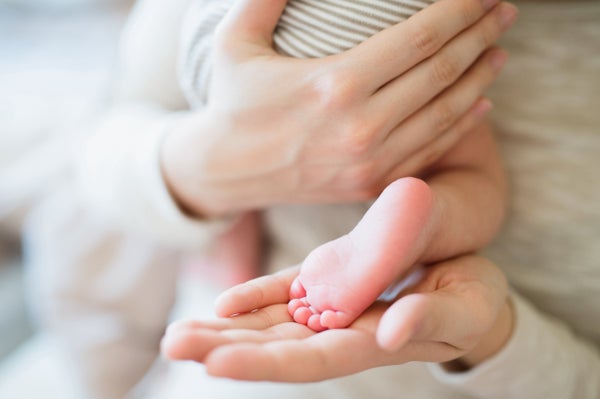Pregnancy Increases Biological Age, but Giving Birth Changes it Back
Carrying a baby creates some of the same epigenetic patterns on DNA seen in older people
Giving birth shifts a person’s DNA markings back toward a more youthful state, but this trend is less noticeable in new birth parents with obesity.
Jozef Polc/Getty Images
Aches and pains aren’t all that pregnancy shares with ageing. Brewing a baby leads to changes in the distribution of certain chemical markers on a pregnant person’s DNA — changes similar to those that are a hallmark of getting older. But new research shows that, several months after a person gives birth, the chemical patterns revert to an earlier state1. The results strengthen previous work in mice and preliminary results in humans2.
It’s not surprising that pregnancy takes a toll, but the reversal was “somewhat unexpected”, says perinatal-health specialist Kieran O’Donnell at Yale University in New Haven, Connecticut, a co-author of the study. It was published on 22 March in Cell Metabolism.
Aged DNA
On supporting science journalism
If you’re enjoying this article, consider supporting our award-winning journalism by subscribing. By purchasing a subscription you are helping to ensure the future of impactful stories about the discoveries and ideas shaping our world today.
The chemical tags analysed in the study are called methyl groups, and they are added to DNA in a process called methylation. They are one example of the ‘epigenome’, features of DNA that change gene activity without altering the genetic code.
DNA-methylation patterns can be used to estimate a person’s ‘biological age’, which reflects the physiological stresses that a person’s body has accrued over time. Some research has found that biological age is a better predictor of health problems such as cardiovascular disease3 and dementia4 than a person’s chronological age.
But unlike chronological age, “biological age…
Read the full article here







